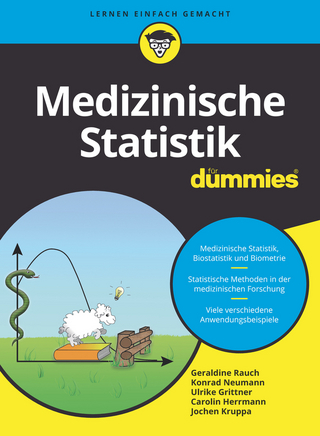
Lectures on Categorical Data Analysis
Springer-Verlag New York Inc.
978-1-4939-7691-1 (ISBN)
Assuming minimal background in calculus, linear algebra, probability theory and statistics, the book is designed to be used in upper-undergraduate and graduate-level courses in the field and in more general statistical methodology courses, as well as a self-study resource for researchers and professionals. The book covers such key issues as: higher order interactions among categorical variables; the use of the delta-method to correctly determine asymptotic standard errors for complex quantities reported in surveys; the fundamentals of the main theories of causal analysis based on observational data; the usefulness of the odds ratio as a measure of association; and a detailed discussion of log-linear models, including graphical models. The book contains over 200 problems, many of which may also be used as starting points for undergraduate research projects. The material can be used by students toward a variety of goals, depending on the degree of theory or application desired.
Tamás Rudas is Director General of the Centre for Social Sciences of the Hungarian Academy of Sciences, and Professor in the Department of Statistics of the Faculty of Social Sciences, Eötvös Loránd University, Budapest. He is also an Affiliate Professor in the Department of Statistics, University of Washington, Seattle. He is a Fellow of the European Academy of Sociology and Past President of the European Association of Methodology. He was Founding Dean of the Faculty of Social Sciences of the Eötvös Loránd University and has held visiting positions in several statistics departments in the US and Europe. His research deals with methods for the analysis of categorical data, including marginal models and other generalizations of the log-linear model, and the assessment of model fit.
The Role of Categorical Data Analysis.- Sampling Distributions.- Normal Approximations.- Simple Estimation for Categorical Data.- Basic testing for categorical data.- Association.-Latent classes and exponential families.- Effects and associations.- Simpson's Paradox.- Log-Linear Models--Definition.- Log-Linear Models-- Interpretation.- Log-Linear Models--Estimation.- What's Next?.-References.
| Erscheinungsdatum | 09.04.2018 |
|---|---|
| Reihe/Serie | Springer Texts in Statistics |
| Zusatzinfo | 1 Illustrations, black and white; XI, 285 p. 1 illus. |
| Verlagsort | New York |
| Sprache | englisch |
| Maße | 155 x 235 mm |
| Themenwelt | Mathematik / Informatik ► Mathematik ► Wahrscheinlichkeit / Kombinatorik |
| Studium ► Querschnittsbereiche ► Epidemiologie / Med. Biometrie | |
| Sozialwissenschaften ► Soziologie ► Empirische Sozialforschung | |
| Schlagworte | Association and Causation • Biostatistics • categorical data analysis • Causal Analysis • Data Analysis • Exponential Family • Graphical Models • Latent Class Analysis • log-linear models • Markov properties • Simpson's paradox • Social Statistics • Survey Analysis |
| ISBN-10 | 1-4939-7691-5 / 1493976915 |
| ISBN-13 | 978-1-4939-7691-1 / 9781493976911 |
| Zustand | Neuware |
| Haben Sie eine Frage zum Produkt? |
aus dem Bereich


